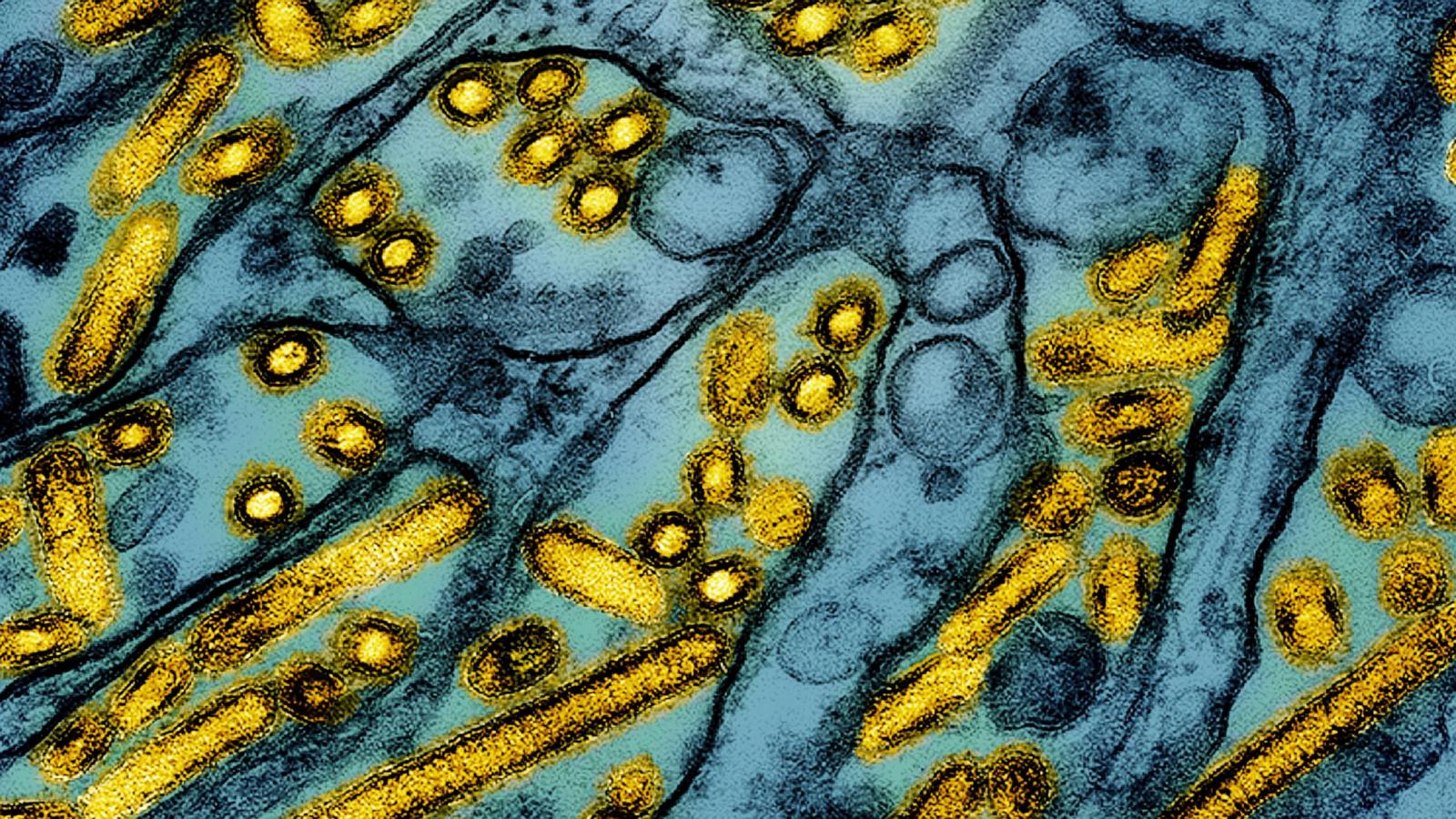Georgia's Poultry Industry Faces Avian Flu Threat: A Wake-Up Call for the Nation?
The recent outbreak of Highly Pathogenic Avian Influenza (HPAI) in a Georgia poultry farm serves as a stark reminder of the fragility of the nation's food supply chain and the devastating impact of avian flu. This isn't just another bird flu scare; it's a critical event impacting the livelihoods of thousands and the nation's top chicken producer. This alarming situation demands immediate attention and proactive measures to safeguard both the industry and public health. Let's delve into the specifics and understand the gravity of the situation.
The Impact of Avian Flu Outbreak in Georgia
Georgia, renowned as the number one chicken-producing state in the US, experienced its first HPAI outbreak in a commercial poultry facility since 2022. This isn't merely an economic setback; it's a potential crisis. The Elbert County farm, situated about 100 miles northeast of Atlanta, reported clinical signs of bird flu on Wednesday, leading to swift confirmation and the immediate deployment of the state's agricultural response teams. The farm housed approximately 45,000 broiler breeders – a considerable loss. The rapid response includes depopulation, disinfection, and disposal measures, emphasizing the severity of the outbreak and the potential for wide-scale infection. Beyond the immediate impact on the affected farm, the quarantine zone affecting other nearby poultry operations underlines the infectious nature of the virus.
Economic Fallout and Farmer Impact: Devastating losses
The economic ripple effect extends far beyond a single farm. The poultry industry in Georgia is a vital economic driver, providing jobs and contributing significantly to the state's GDP. This outbreak casts a significant shadow over the livelihoods of thousands who work in this industry. The costs involved in depopulation, disinfection, and disposal operations are significant for the affected farm, as well as the economic blow from lost production, impacting poultry farmers across the supply chain.
Quarantine measures and response teams' role: Protecting the poultry supply chain
The rapid activation of the State Agricultural Response Teams demonstrates the efficiency of protocols designed to contain the outbreak. Imposing quarantines on commercial poultry operations within a 10-kilometer radius is essential to curb the spread of the virus and prevents additional infection of poultry facilities. While testing continues and procedures are strictly followed to guarantee the safety of poultry products destined for consumption, consumer confidence remains a vital concern in preventing any economic downturn for poultry producers.
National and Global Concerns about the HPAI Spread
The Georgia outbreak is not an isolated incident; avian flu has wreaked havoc on poultry populations globally over the past two years. The US has witnessed outbreaks across numerous commercial and backyard flocks, underscoring the virus's wide reach and high transmissibility. The sheer number of affected birds (over 10.7 million in the last month alone) illustrates the urgent need for strengthened preventative measures. This situation calls for enhanced biosecurity measures across all poultry farms, strengthening surveillance efforts to detect outbreaks early, and fostering international cooperation in disease surveillance and control. A worldwide solution needs international collaboration.
Addressing the global concern: Is HPAI a threat to human health?
While human cases of avian flu are rare, the recent death of a Louisiana man from the virus underscores its potential danger. This is not merely an issue confined to poultry; public health implications must be considered. While the risk to humans remains low, health officials must raise awareness and encourage the consistent adoption of effective biosecurity measures on all poultry farms. For humans who have close contact with affected poultry, using protective gear like masks and hand gloves is necessary to avoid spread to human populations.
Economic threat of the Avian Influenza on a national and international scale
The threat of avian influenza goes far beyond individual farms and states. The impact on the broader poultry industry and food supply chains can be significant. Global trade could be disrupted by outbreaks and the implementation of restrictions, resulting in price increases and food insecurity. Economic stability is also impacted on poultry suppliers who depend on the global market to distribute their goods and meet consumer demands. Moreover, fluctuations in market conditions due to disruptions cause unpredictability for many individuals who rely on stable markets.
Preventing Future Outbreaks: Proactive Steps Needed
Preventing future avian flu outbreaks requires a multi-pronged approach that starts at the farm level and extends to the global scale. This means bolstering biosecurity measures, implementing robust surveillance systems, and establishing strong communication channels among producers, government agencies, and international organizations. Collaboration on disease monitoring and prevention requires international and national cooperation, where each region would contribute to the safety of their respective area. Early warning systems should be implemented nationally to contain any possible threat immediately before they have wider effects. Such proactive actions protect farmers from losses due to outbreak prevention.
Importance of early detection and enhanced surveillance: Effective intervention strategies
Early detection and rapid response are key to containing an avian flu outbreak. Enhanced surveillance networks across regions will play a critical role in identifying cases and coordinating control measures. Timely intervention, including effective vaccination strategies, helps in minimizing the economic and health consequences of avian flu outbreaks. Investments in national research are critical to improve interventions.
Collaboration between governments, producers, and international bodies: Fostering collaboration
Effective collaboration is paramount. Collaboration between government agencies, poultry producers, veterinarians, and international organizations is essential in sharing information and coordinating prevention and control efforts. Creating a system that ensures transparent information sharing and efficient response measures across regions will enhance intervention strategies.
Take Away Points
The avian flu outbreak in Georgia highlights the fragility of the poultry industry and the need for a proactive approach to disease prevention. Early detection, robust biosecurity, effective communication, and international collaboration are essential to prevent future outbreaks and minimize the impact on human health and economic stability. Investing in prevention is an investment in long-term sustainability.









